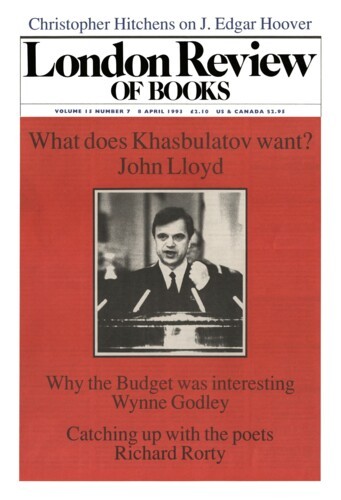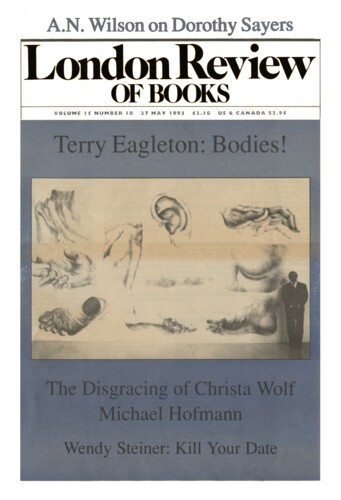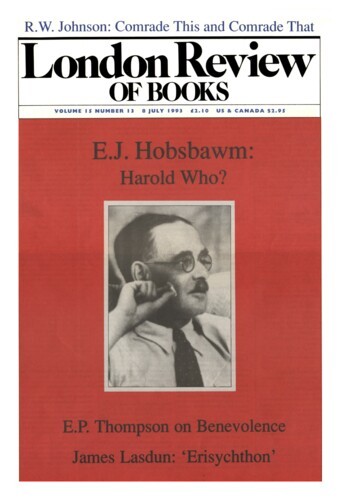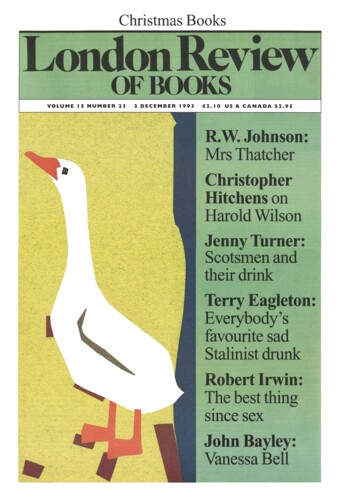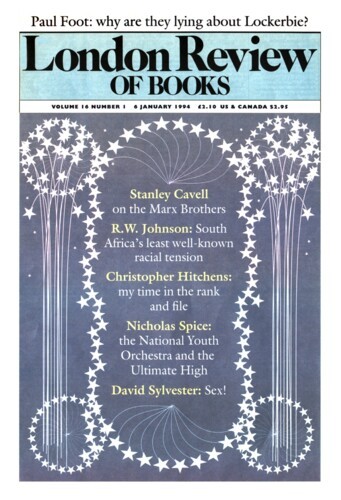Lapsing
Terry Eagleton, 8 April 1993
There are no ex-Catholics, only lapsed ones. A lapse, as the light little monosyllable suggests, is a mere temporary aberration, an ephemeral error which can always be retrieved; and even the more ominous sounding ‘excommunication’ can always be undone by a quick bout of repentance. Leaving the Catholic church is as difficult as resigning from the Mafia; for the Church in its wisdom has artfully anticipated such renegacy and created within its ranks the special category of ‘lapsed’, wedged somewhere between saints and clergy. Like every authoritarian institution, the church incorporates its own outside into itself, so that to lapse is to enjoy a privileged relationship with it, to be counted among an honourable company of ruined Jesuits, inverted metaphysicians, loose-living Dubliners and Latino leftists. Indeed if religious devotion survives anywhere in these secular times, it is in the negative theology of these Oedipal offspring of Mother Church, who hammer their fists on her bosom with all the passionate intensity of the true believer.
